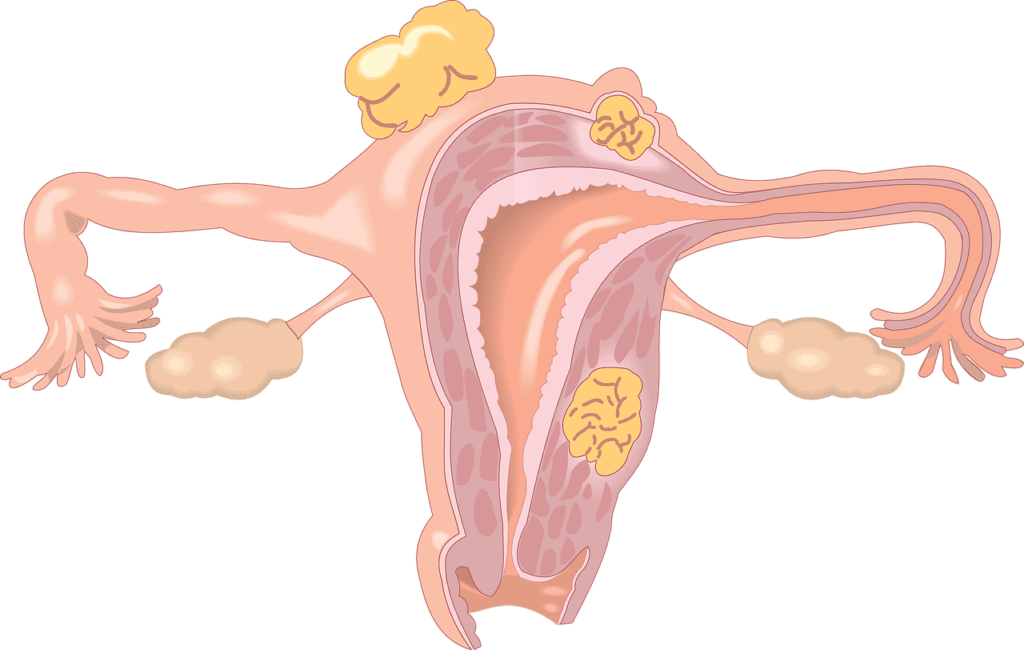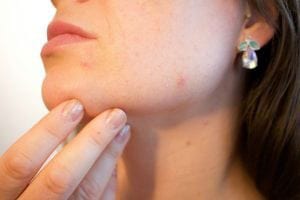When Elsa Cavazos was in high school, she experienced some physical “abnormalities” that she wasn’t quite sure how to deal with. While peers worried about the occasional zit on the chin, or the shine of braces, Elsa had thick sideburns, a slightly hairy chin, and severe acne. What she didn’t know, at the time, was that she was grappling with polycystic ovarian syndrome (PCOS), a hormonal disorder that is notoriously difficult to diagnose. Now, she explains her journey to diagnose – and the emotional toll it takes – in PopSugar.
Elsa’s Story
At first, Elsa thought that her acne was hereditary. When her father was younger, he had also experienced severe acne. Together, they attempted to find skin-clearing treatments. In terms of her body hair, which she bleached, she felt maybe she was just more hairy than normal.
However, as she grew older, she began noticing other symptoms, like an inability to lose weight. She began to research and came across a potential diagnosis: PCOS. But PCOS is notoriously under-diagnosed and many physicians are still unclear on the complexities of the condition.
Her first attempt at diagnosis occurred after Elsa and her father traveled to Mexico to visit a dermatologist. Immediately, the dermatologist asked if Elsa had ever gotten an ultrasound to check for PCOS. Clearly, the next step was getting this done. But her first ultrasound showed…nothing.
Next, Elsa sought a second opinion elsewhere. This is when she saw them:
“there they were floating on the screen: multiple cysts, the source of my suffering, almost taunting me.”
Since then, Elsa takes birth control pills and metformin, as well as works to improve her fitness routine and diet. Birth control pills, particularly combination pills, can reduce symptoms like acne or hair growth. Alternately, metformin assists with improving insulin resistance. Diet and fitness can also work towards symptom reduction and overall health.
While Elsa is now being treated, she recognizes the emotional impact the journey to diagnosis – and the condition itself – can take. Currently, women are less likely to have their health problems taken seriously and less likely to receive an accurate diagnosis, according to U.S. News. Raising awareness of these conditions will hopefully help more patients receive help in the future.
Polycystic Ovarian Syndrome (PCOS)
Polycystic ovarian syndrome (PCOS) is a hormonal disorder which causes enlarged ovaries with small cysts on them. It affects females during their reproductive ages. Overall, around 1 in 10 females are affected. Doctors aren’t entirely sure what causes PCOS, but genetics, excess insulin, and excess androgen are thought to play a part.
In PCOS, women may experience irregular menstrual cycles. Their ovaries don’t release eggs normally. Symptoms often appear around the start of puberty and include:
- Irregular or infrequent periods
- Infertility
- Premature birth or miscarriage
- Abnormal uterine bleeding
- Sleep apnea
- Gestational diabetes
- Type 2 diabetes
- Metabolic syndrome
- Anxiety or depression
- Eating disorders
- NASH
- Endometrial cancer
- Excessive hair growth on the face, chin, or other parts of the body
- Severe acne
Learn more about PCOS here.






